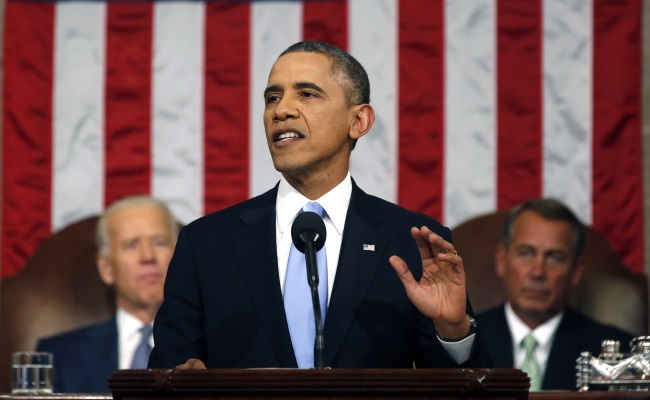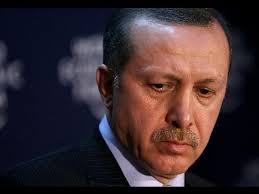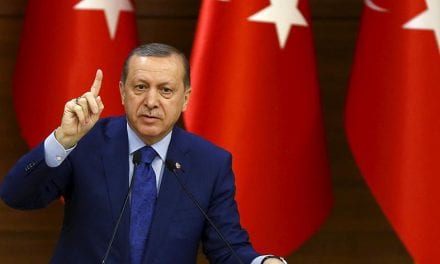The former president’s message still has power. But his ideas are no longer sufficient.
Since the end of World War II, an informal rule has existed in American politics: Ex-presidents don’t play partisan against their successors. Truman didn’t campaign against Eisenhower; Eisenhower didn’t speak out against Kennedy; Johnson left the game under Nixon; Carter left Reagan in peace.
This continued uninterrupted into the 21st century. But in a speech on Friday at the University of Illinois–Urbana-Champaign, former President Barack Obama broke with tradition to criticize the current White House occupant and urge Americans to impose accountability at the ballot box. “In a healthy democracy, there’s some checks and balances on this kind of behavior,” Obama said of President Trump and the Republican Party, “but right now there’s nothing.”
Obama’s solution for opponents of the administration and its enablers is to vote. “This whole project of self-government only works if everybody’s doing their part,” he said. “Don’t tell me your vote doesn’t matter.” But this moralistic appeal to civic engagement ignores the real structural obstacles to political participation: not just perennial problems of inequality and access, but escalated voter suppression. Those obstacles are one reason his legacy is in danger and why Democrats may fail to translate discontent into a congressional majority. But while Obama might downplay their significance, his political successors—especially those black lawmakers vying for higher office—are not.
Compared with his optimistic farewell address, Obama’s speech to students was strikingly partisan. He hit Trump for capitulating to “Nazi sympathizers” and slammed congressional Republicans for “cozying up to Russia,” “cutting taxes on the wealthiest,” and “abdicating [their] responsibilities” in the face of presidential misbehavior.
These narrow attacks eventually gave way to a broader critique of the Republican Party. For Obama, the backlash against liberal progress did not start with Donald Trump, whom he described as “capitalizing on resentments that politicians have been fanning for years.” Instead, it’s a product of deep-rooted fears and anxieties that emerge during all periods of social and economic change. And while he refrained from solely blaming either party, he argued that “over the past few decades, the politics of division and resentment and paranoia has unfortunately found a home in the Republican Party.”
As such, the former president urged his audience—and anyone listening—to vote in November against the Republican majority: “If you don’t like what’s going on right now, and you shouldn’t, do not complain, don’t hashtag, don’t get anxious, don’t retreat, don’t binge on whatever it is you’re bingeing on, don’t lose yourself in ironic detachment, don’t put your head in the sand, don’t boo. Vote. Vote.”
“Don’t boo, vote” is a frequent Obama-ism, used frequently when he was on the campaign trail, from his first presidential race in 2008 to his speeches on behalf of Hillary Clinton in 2016. It’s part of his broader pitch for political engagement, drawn from the same moralistic impulses behind his “respectability” talks to predominantly black audiences, where he invoked “Cousin Pookie” and advocated voting on the basis of civic and personal responsibility. “If Cousin Pookie would vote, if Uncle Jethro would get off the couch and stop watching SportsCenter and go register some folks and go to the polls, we might have a different kind of politics,” he said in a 2007 address in Selma, Alabama, on the 42nd anniversary of the Bloody Sunday march.
As part of this pitch, Obama has rejected arguments about actual constraints on the ability of voters to participate. “We disempower ourselves all the time,” he said in an interview with Al Sharpton just before the last presidential election. “You can’t tell me that all those folks who don’t vote are doing so because somebody’s turned them away or somebody’s intimidated them, no. It’s because they decided they had something better to do.”
This is not to say Obama is indifferent to voter suppression. “Republicans have led efforts to pass laws making it harder, not easier, for people to vote,” he said in a 2014 speech to Sharpton’s National Action Network, pledging to stop the push for new restrictions. “As president, I’m not going to let attacks on these rights go unchallenged. We’re not going to let voter suppression go unchallenged.” Under Attorneys General Eric Holder and Loretta Lynch, his Department of Justice acted accordingly, challenging and blocking onerous voting requirements like the ones in Texas and Wisconsin.
But Obama does believe that these restrictions aren’t onerous enough to stop those who truly want to participate. “The notion that somehow voter suppression is keeping you from voting, as systemic as Republicans have tried to make voting more difficult for minorities, for Democrats, for young people, the truth of the matter is, if you actually want to vote, then you can vote,” he said in that 2016 interview. He echoed that sentiment in his Illinois address, when he told students that “the biggest threat to our democracy is indifference. The biggest threat to our democracy is cynicism.”
It’s a sentiment that many progressive candidates today—a “younger and more diverse” crop, as Obama said in his speech—might not agree with. They, and progressive activists across the country, are sharply aware of the onerous barriers to voting erected in the wake of the Supreme Court’s 2013 ruling in Shelby County v. Holder. For them, racial gerrymandering, strict voter identification, burdens on registration, and broad voter purges are the most pressing threats to political participation and democracy.
The most high-profile figures in this group are black politicians running in a space forged by Obama. Stacey Abrams of Georgia, Andrew Gillum of Florida, and Ayanna Pressley of Massachusetts won tightly contested nominations with similar coalitions of blacks, Hispanics, and liberal whites, using similar language of unity and inclusion. “This is a disruptive candidacy, a grassroots coalition,” declared Pressley in her victory speech. “It is broad and diverse and deep. People of every walk of life.”
What you don’t see from these candidates—and Abrams and Gillum in particular—is Obama’s brand of political moralism. Instead, they urge engagement without shaming those who can’t or won’t participate. “With your help, we will register every last person we know,” promised Abrams in her victory speech. “And we’re going to search out those we don’t know yet and prove they matter to us, too … with your hands knocking and your feet walking and your voices speaking out, every Georgian we touch will understand the value and the immense power of our vote.” Abrams, who ran a statewide registration project aimed at black and Latino voters, is well aware of the structural obstacles to voting in the state and the critical need to circumvent them. She cannot afford to dismiss their impact.
Andrew Gillum urges his supporters to vote and speaks clearly and forcefully against Florida’s regime of felon disenfranchisement. “Florida is just one of three states, one of three states that still has this kind of arcane, Jim Crow system of rights restoration, one of three states,” Gillum said. He also speaks about voting in terms of candidates’ earning the vote, rather than the responsibility of voters. “We believe the way a Democrat is going to win in November is by turning out those voters who feel like they have been ignored, underrepresented, not reflected in politics, not reflected in the kinds of issues that impact regular working people. We are going to give those voters a reason to turn out and vote for us.”
A more forgiving attitude toward those who don’t vote—and a greater recognition of obstacles to the ballot—may not fit with Obama’s vision of civic engagement and responsibility. But it does speak to feelings of disenchantment and disengagement that proved ruinous for Democrats in the last two national elections. Democratic apathy in 2014 contributed to Republican Senate gains; Democratic apathy (and voter suppression) in 2016 helped Donald Trump become president, giving Republicans an opportunity to undermine Obama’s legislative and regulatory accomplishments. Talking about voter suppression may not energize voters, but downplaying it rings false. Greater engagement with the problem—even using it to center a voting-rights agenda—may have proved more effective this cycle than essentially trying to shame Americans into voting.
You can understand Barack Obama’s return to electoral politics as a commentary on the stakes of the moment; control of Congress will have profound implications for democratic accountability and the direction of American governance, to say nothing of President Trump’s personal fortunes. Looking beyond the question of the current White House occupant, Obama’s return is also an opportunity to think through and even complicate his political legacy and the ways in which he expanded the realm of the possible for candidates of color, and black Democrats in particular.
He did this, in part, by merging a rhetoric of unity with one of responsibility and respectability. He motivated and he moralized. But protest movements like Black Lives Matter and a heightened sense of the limits of moralizing have made “respectability” unfashionable. His political successors have rejected it entirely, absorbing the basic insight of Obama’s career—that black candidates can win decisively in white electorates—and pushing beyond the boundaries set by the former president.
That evolution is what’s striking about the present moment and why Democrats across the country are watching Georgia and Florida with a close eye. These are black Democrats running unambiguously progressive campaigns in traditionally conservative states, where black politicians have failed to make serious inroads. They’re competitive, and if they win, they’ll have an opportunity to begin dismantling the barriers to voting that will help clear the path for their successors, whoever they are, and whenever they come.



















